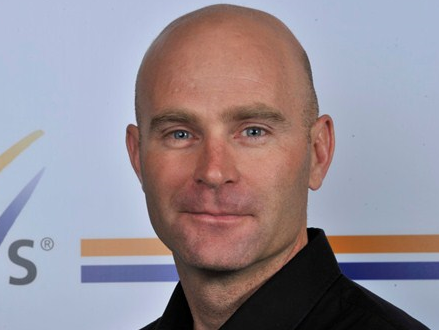


Pierre Mignerey, FIS Cross-Country Race Director gave an interview to www.xc-ski.de about the future of Cross-Country Skiing and proposals how to streamline the competition programme. Here's the English original of the interview.
Pierre, there are rumours that there will be major changes to the competition formats after this season. First of all, who drew up these proposals and what was the motivation for thinking about changing the competition formats?
First of all, this is not a new topic. The Cross-Country family has been discussing race formats for a few years now. The world is constantly changing and every human activity needs to adapt. Cross-Country Skiing like all the other sports needs to take into consideration the expectations of all the stakeholders and it is now time for us to make some decisions. We can not only speak for ever.
That being said I don’t know if there will be any changes and how far we will go. At the moment there is a proposal on the table as the basis for future discussions and evaluations. In any case there will not be any “revolution”. Our goal is to streamline and simplify our race program. We want to use our traditions as a base and to make Cross-Country Skiing as attractive as possible for all the key stakeholders (fans, TV viewers, television, sponsors), as well for kids and young skiers.
To answer your question, the current proposal was drawn up by a small group of FIS and FIS Marketing Agency staff after discussions with many different stakeholders over the last two years.
One suggestion is to remove the skiathlon from the programme at major events and replace it with a 30/15km pursuit start. The pursuit event would be based on the results from the individual 10/15km competitions. Isn't this a step backwards if you cut one of the most innovative formats from recent years?
I don’t think that this is a step backwards and I don’t think that this is the right question. Our proposal is based on a variety of analysis, concrete facts and as much as possible on impartial arguments. It is definitely not easy, sometimes even painful to remove a format from the programme. But at the same time it is necessary. If we want to change our sport, we cannot always create new formats, implement new distances, new elements in our World Cup calendar. We are convinced that Cross-Country Skiing must be easy to understand for the largest possible audience.
What are the special reasons for thinking about cutting the skiathlon?
We have tried to look at the plus & minus for each format and our conclusion is that in the case of Skiathlon the balance tilts more on the minus side. Skiathlon was introduced to bring both techniques together in one race and to create lead changes, race drama after the ski exchange. The concept is good but it doesn’t really work and for the most part of the skiathlon has become nothing more than a Mass Start with a ski exchange in the middle of the race.
Skiathlon is very demanding in terms of infrastructure, courses, stadium and snow: we need two separate course systems, a wide and long stadium and pit boxes. The consequences are that only a few venues can properly organise this format and that we have huge technical requirements, which are used only for one race format.
Skiathlon is also demanding in terms of skiing equipment and waxing with some expensive consequences for skiers and teams: specific equipment, more wax, more testing and more staff. This is probably even a bigger problem at the junior and COC level.
At the World Cup level we have to also mention the extensive TV production costs generated by the necessity of having 2 separate course systems, we need to have more TV cameras, more manpower, etc.
Additionally, this format is properly working only once a year at the WSC or OWG. Skiathlon doesn’t really fit in the World Cup program and we strongly believe that the title events should be the base of the World Cup program with the exception of the 30-50km. Skiathlon is also almost not used anymore at lower level such as COC or national competitions.
So to summarize there is a long list of “minus” for this format and it is pretty clear that the “price/quality” ratio is not high enough to maintain skiathlon in our race programme. In a world more and more focused on sustainability and cost control we believe that it is important to take into consideration also the environmental and financial aspects.
A second major break could be the cut of classic sprints. What are the considerations behind this possible step?
There are several arguments behind this proposal, which is based on detailed analysis.
First of all, we strongly believe that Cross-Country Skiing needs to be, and can be more attractive for kids and young athletes. Today there are a lot of attractive formats such as XCX (Cross-Country Cross) organised for the kids in many countries. But what we have been missing is the link between these formats and competitions at the top level. We need a better connection between what kids do, what they can see on TV and what their stars are doing. We all know the power of YouTube, social media and TV pictures. Some people would like to introduce the XCX as a new format.
From our point of view it makes more sense to integrate some technical elements in our existing sprint competitions. We are not speaking here about artificial elements. We would like to play more with the terrain, with waves, banked curves or even small jumps. Obviously it is almost impossible to implement these elements in classic technique.
In addition, the evolution of classic technique is each year creating challenges in sprint competitions. On the World Cup level we still have a few good sprint classic courses but what about competitions at the lower level, for kids and youth? It has become more and more difficult to guarantee fair competitions. One of our main principles is that Cross-Country Skiing must not become a sport where the Jury decides the final result.
It is also a fact that sprint courses are basically designed around a stadium with 1 or 2 uphills. It is a challenge to find proper climbs not far away from our stadiums. The consequence is that classic sprints will be more and more only double poling with running on skis. Is it really where we want to go? Is it the best way to promote the coexistence of both techniques and especially of diagonal technique? We don’t think so.
Finally, we believe that in terms of idea of a sprint means speed. And when you want to go fast, you are using the fastest possible technique and that’s skating.
Isn't this the beginning of the end of classic technique?
We strongly believe that having two techniques is a part of our DNA and that our race programme should include both techniques. But I’m convinced that the best possible way to preserve and promote the diagonal technique but also as a consequence for the classic technique is to concentrate our efforts on the most favourable formats and the most favourable venues. Maybe less classic technique but higher quality will be much more efficient than a dogmatic 50-50% rule in all formats and/or all seasons, all competition levels.
If one day we need to stop competing in classic technique, I don’t think that it will be right to say that the beginning of the end was when we have decided to race sprints only in free technique.
Yes, we are facing some challenges with classic technique. I think the correct description would be the disappearance of diagonal technique, but we need to choose a pragmatic approach without dogma.
Proposal three is the introduction of a mixed team sprint. Does this mean that you cut a medal event (if there's only one team sprint and not for both sexes separate) at the Olympics?
The opportunity to replace the team sprint per gender with a mixed team sprint needs further evaluation.
Yes, the Cross-Country discipline would lose one medal event at Olympics and World Championships, however, our athletes will not lose anything. Each individual athlete would still have the same potential number of medals.
The biggest challenge would be on the World Cup level. Having only one relatively short event on competition day would create challenges for the organizers and their financial income. One competition means less income. One race means also a shorter entertainment platform for the spectators on site.
On the other hand, mixed team events have become very popular and might help more nations to participate and have good results. As you know, having more nations participating and competitive at the highest level is one of the key goals for the future.
The decision must take all these aspects into consideration but if we collectively believe that our discipline will have a benefit with a mixed team sprint, I don’t think that we should be afraid to lose a medal.
When will the proposals be decided and who is involved in the decision?
The current proposal will serve as the base for further discussions during the upcoming winter. We also need to discuss it with the International Olympic Committee and the World Ski Championships rights holder and other stakeholders. Then we will see what should be adjusted and how flexible we can be and then establish a final proposal for the next FIS Congress. Implementation of any potential changes would take some time. Nothing will be immediate.
Source: fis-ski.com





